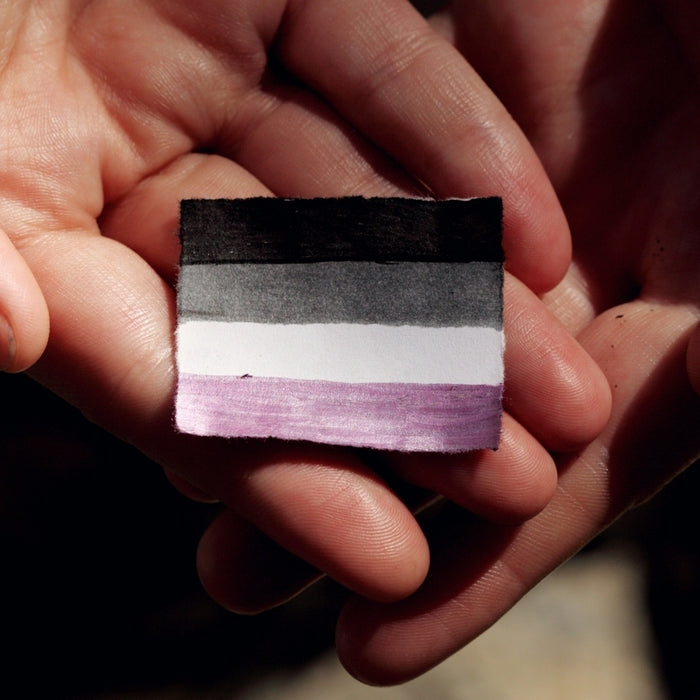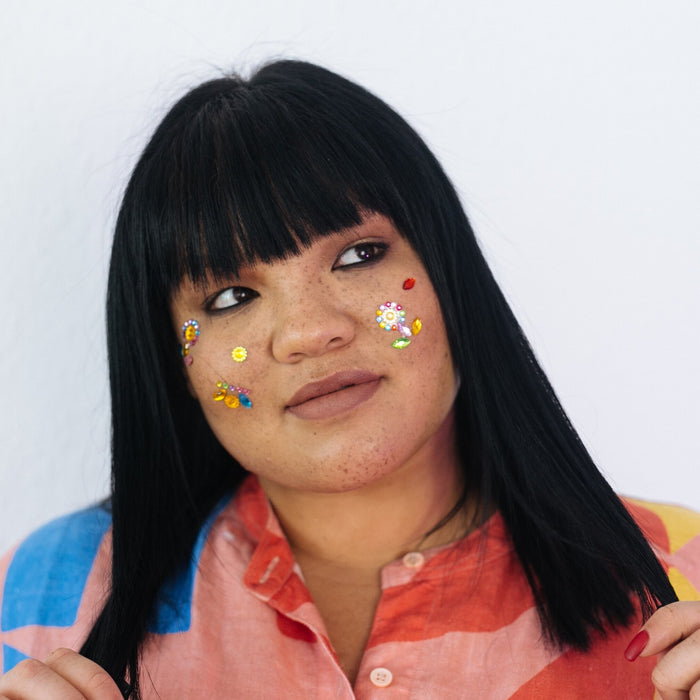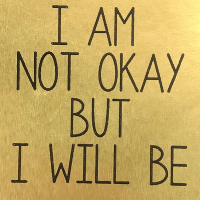

Vulnerability as Self-Love
A guest post by Kaytlyn Giaccone
I struggled for a while with the idea of self-love. I had to work so hard to just get from a place of self-hate to self-neutrality to self-respect... but self-love was a decision I made.
It’s radical, really. Deciding that my own mental, physical, emotional, spiritual, financial well-being needed to be put first came with a lot of complications. Like any major life changes, self-love and the practical behaviours that come with it (that, of course, vary from person to person) can rock relationships, confuse family members, cause friends to resent you.
Committing myself to... myself was the best and hardest thing I’ve had to do. I say hardest because there’s really no way to do it without being vulnerable. Just the word vulnerable can make you itch with discomfort, make you wanna wrap your arms around yourself, make you wanna curl up in a ball and decide maybe self-love is too hard.
I think people often associate self-love with the ability to say no. The ability to reject things you feel obligated to do. To be open and expressive about your history and your story and your truth. This can all be true, but there’s a fine line between being open and honest and not keeping anything for yourself.
Spilling your guts out onto the floor in front of every single person you meet is not vulnerability. I'll say it again--dropping your trauma on the laps of unsuspecting lovers, friends, and coworkers--that is not vulnerability. Trust me, I've tried that!
I'd been walking around this world, walking through my life thinking, "Wow, I have been through so much and I'm just fine! I'm able to talk about it whenever and wherever and however and it does not phase me."
This, my friends, is not vulnerability. This, I'm afraid, is a total lack of boundaries and self-awareness. I can look back on past me and notice all of the times I did this, and realize that while I was perhaps looking for love or support or care or anything really, what I was actually doing was setting up impermeable walls. I was trying to give every person I met every possible opportunity to be like "oh shit, this girl has ISSUES" and turn around and walk away before I truly gave a shit. Do you see how totally opposed this behaviour is to self-love? It’s like purposely preventing yourself from being able to create meaningful connections with others.
I suppose I've been struggling for my entire adult life. I've been trying to piece together where my trauma stops and where my being begins. What part of me is my story and what part of me is...me? Who gets to access my story? Who do I want to share my deepest fears and insecurities and traumas with?
Of course, I am no doctor, I'm not a therapist, I'm not an expert of anything except my own experience. I should be clear also--my experience and growth is very much owed to doctors, therapists, other types of healers, and myself. But I digress.
Brene Brown's Netflix special, "The Call to Courage," took all of these difficult ideas that I've been mulling around for years now, and made it really plain and simple:
Vulnerability involves uncertainty, risk, and emotional exposure.
When you or I drop our lengthy and disturbing history of trauma on someone without warning, there are a few things at work. First, there is the issue of boundaries. In my case, I had absolutely no personal boundaries. Having no pre-requisites to giving a person access to my inner workings and my life story... it came from a place of self-hatred. I wanted to tell people all the bad stuff about me before they could find out on their own and leave me. And to make matters worse, there was no conversation about the listener's boundaries or needs.
"Boundary," is a really big buzz word right now, and sometimes people can struggle with understanding exactly what it means. I define boundaries as kind of the road map you make of how people can meet your needs. This road map includes stop signs (hard boundaries: things you're not willing to budge on); it's got yield signs (hard to navigate areas, ones where you've gotta slow down and be alert); there's green lights; and I think the key is that things can go under construction at any time. A yes can become a no at anytime.
Before I had boundaries, it was a bit of a free for all. I had no idea what behaviour to expect from others and they certainly didn't know what to expect from me. Having no boundaries was a bit like being like "fuck it" and closing my eyes while aggressively driving around. Sure, maybe I was uncertain of what would happen because of my reckless behaviour. Granted, it was quite risky to be rushing around without being conscious of my decisions and behaviour. But, there really was no emotional exposure. Being without boundaries, driving aggressively and recklessly, was a defense mechanism, a shield. And the thing about shields as I'm sure you know, is that they're meant to keep people out, they're meant to isolate you from danger.
Vulnerability is dropping the shield. It’s sitting down with myself and asking myself a few hard but important questions to help me change habits that reinforced self-hatred where I really yearn for self-love.,
- What would happen if I didn’t tell someone all my baggage on day 1?
- Under what circumstances would sharing my story feel like a connecting experience as opposed to a “pushing away.”
- What is the difference between the way that I see other people and their stories and the way that I imagine other people to see me and mine?
It's creating relationships with others where you feel safe. For me that means expressing my needs. It means telling my lover that I need to hear words of affirmation in order to feel secure in the relationship--even if that feels awkward and uncomfortable at first. It means being honest with myself and others when I need alone time. It means sending the uncomfortable, "I'm really not doing well today, can we reschedule," text instead of making something up that sounds "more legitimate." Having that uncomfortable conversation, it involves a certain amount of uncertainty. There's the risk that the other person might not be understanding. There's the exposure of your feelings and your heart and your mushy bits that you're giving someone else the power to hurt.
But there is also power in expressing your needs. There is strength in an enthusiastic yes or a firm, unwavering no. For me, vulnerability, boundaries, expressing my needs, they made me trust myself. It made me respect that I could take care of myself. It allowed me to love myself.
Vulnerability is saying "can I share something personal and difficult with you?" (so that you respect that person's boundaries), it's getting the go ahead, taking a deep breath and sharing what you need to say. It's tender, it's delicate, it's difficult as fuck. It's doing all of this knowing that you will sometimes fail. You will sometimes get hurt. You will sometimes have to throw that shield back up for a while.
Vulnerability feels like showing up and doing the damn thing. It's showing up for yourself, even though you're uncertain of the outcome, even though there's risk involved, even though you will, inevitably and maybe even beautifully, be emotionally exposed.
This is the seventh blog post for our 2019 Summer of Self-Love! Every week for 12 weeks, we're sharing questions, activities or ideas that we hope will help you fall more in love with yourself this summer. You can find our first post here, or sign up for our Summer of Self-Love Newsletter here.




